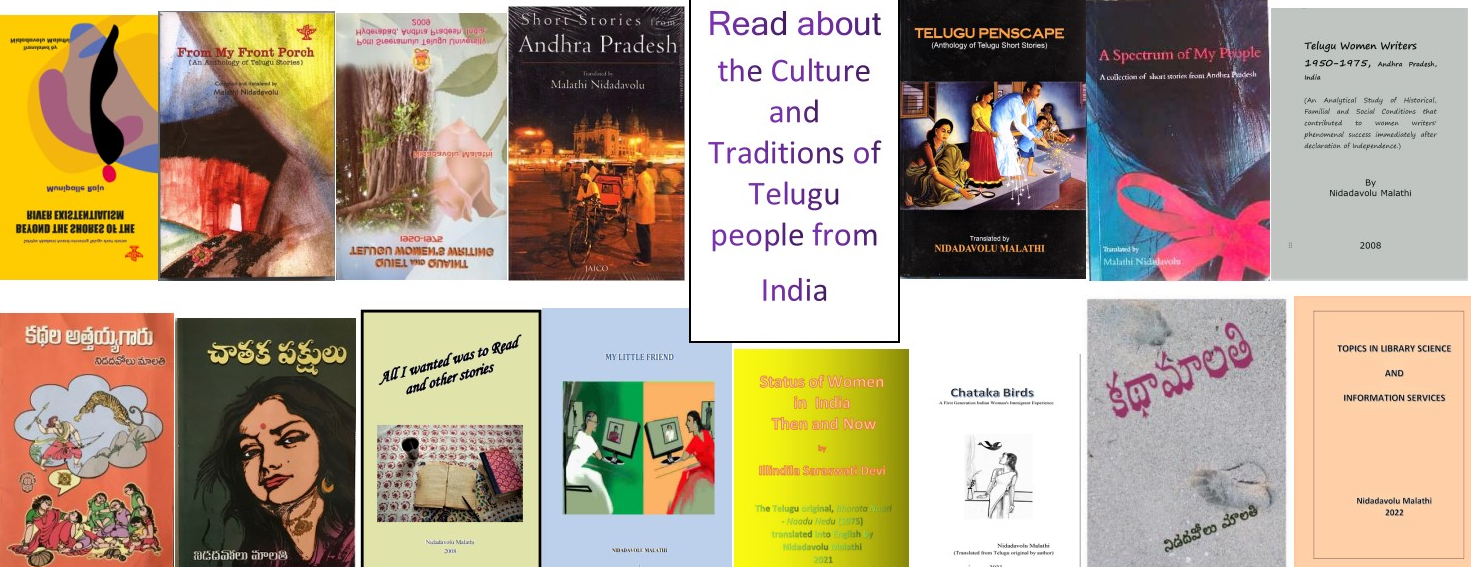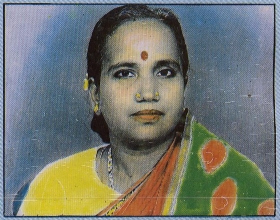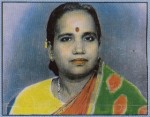In the final days of his life, Ramayya was thinking of the events in his life. It felt like they had happened just yesterday or the day before.
Exactly thirty years back, he had come to this town wearing a threadbare dhoti and a filthy shirt and searching for a way to fill his empty stomach. He went around for a week until his feet nearly wore off. At the end, a contractor gave him work which earned him six annas[i] per day. “That is good,” he told himself and was content. He worked with determination and as if he was working for himself.
One day, he was resting under a banyan tree on the outskirts of the town along with other workers. Then he had a wish; wouldn’t it be nice if he got the job as a clerk in the manager’s office instead of sweating in the sun and rain like this? The manager noticed Ramayya’s skills and gave him the job as a clerk.
He found an opportunity to prove his ingenuity, modesty, and new methods that would bring profits directly to the owner. He wondered why he could not be the manager; he was smarter than the manager. It did not take even four years before that wish had been fulfilled. In the meantime, God only knows how fretful he had been!
After that, profits started pouring in and he thought it would be great if he became a contractor himself—car, two-storey building, higher education for children, better proposals for daughters …
It did not take many years for that wish to materialize. The owner gave Ramayya a small share in his company. He kept increasing that number of shares and after sometime he left the entire responsibility to Ramayya and went away to visit other countries. With the profits he had earned, Ramayya built a two-storey building, and bought a car. His children were going to college in the car. Now, the status of his friends and relatives, whom he was gathering, was totally different.
His lifestyle and the food he was eating had changed. It became necessary for him to eat on the table. His feet were refusing to move without car. By the time the contractor returned home, Ramayya had assumed all the responsibilities and become the proprietor himself. Big name contractors were inviting him to some meeting or other and honoring him. Despite his seemingly vehement protests, people were praising him and putting him down in the books as a great benefactor. A building for local high school was built in his name. He became a great leader in that town. He started out as a council member and soon became municipal chairman.
His eldest son grew up and started looking after the business matters. All Ramayya had to do was to put his signature wherever he was asked to. A few other businesses like a clothes mill, two rice mills, and salt production were opened in his name in quick succession. Even as the businesses kept growing, generosity in his heart also kept getting bigger. He was constantly on tenterhooks and looking for ways to give.
One day he was in bed with fever. Another wish came to his mind but the stark reality also struck; he knew that it would work. That led to another wish. The days accumulated into years and the signs of old age started setting in. His health was deteriorating. He grew a beard. He was certain that nobody could recognize him as the same Ramayya who used to be a few months back. Under the circumstances how his wish to live very long could be granted? No, that’s not going to happen. Therefore, he had entertained another wish.
He had been generous to many people in so many ways. He could say with his hand on his chest, with confidence and satisfaction, that he would be leaving behind enormous fame and respect in the community. There were poets who had praised him as a patron and compared him to Karna, the great benefactor in Mahabharata. Ramayya was excited at the idea; wanted to go into the town disguised as a beggar, and watch with his own eyes all the respect the public had for him, listen to what everybody said about him and die happily and contently. The thought grew stronger by the minute and settled in his heart strappingly.
Within a few days, he gathered all the necessary tools for his plan. He collected enough strength in his body to walk a few furlongs. He told the people around him not to approach him and bother him for anything. The home had always been in a festive mood—always filled with the hullabaloo his children’s friends and relatives had been creating. He wanted to pick a day when everybody was busy with such festivities, leave home by the backdoor, and return to take them all by surprise. How wonderful it would be to see their faces when they find him in the disguise of a beggar! He was quite tickled by his idea.
That day came. Everybody in the house retired to the third floor. There was a marriage proposal for his younger daughter. The party came to see the would-be bride. A huge party was arranged in their honor. After the party, a bharatanatyam performance was arranged. He could manage to go upstairs. However, he told them he was feeling weak and could not go upstairs and sent them away.
All the conditions were favorable to him. The entire sky was filled with dark clouds but there was no sign of rain though. “I can’t find a better opportunity than this. If they see me, they will not let me go. Maybe, I could return before the rain hits if I leave right now,” he persuaded himself thus and changed clothes quickly. He looked in the mirror in front of him and was surprised at his disguise himself. He was looking exactly like an old beggar; ready to fall at the slightest blow of a wind.
He looked around, made sure nobody was watching, and hit the street through the backdoor. He bent forward and started walking with the help of a cane. He saw somebody on the road and called out, “Babu!”
That person said quickly, “I’ve got nothing to give, go away.”
Ramayya was irate yet remained calm and followed him, “Babu, I just came to the town for the first. I see some noise in the mansion up there …”
Even before he finished the sentence, the other person said, “Of course, brouhaha in his mansion, ha, where else if not in his mansion.”
“What do you mean, babu?”
“So many people are dying for want food, and he will have birthday parties even for the cat.”
“Who’s he, babu?”
“They call him Ramayya.”
“Oh, you mean that Babu? In my area, people say he is a generous man.”
The other person laughed and said, “Did he give even a piece of cloth without imprinting his name on it? A school without his name on it? What do you know about him? Ask him when he is alone and see if he drops a paisa in your palm. Ask him when he is surrounded by a few people, and he will throw you a ten rupee note. He is ripping us off and donating generously to cover those sins. We are the crazy ones, not him, old man!”
On hearing those words, Ramayya was silent; no word could come out of his mouth. The man walked away. Ramayya looked at him in the street light. He was no other than the man that had poured praise on him at a huge gathering previously.
After a while, Ramayya set out again. He saw several people walk by. His heart was sinking at the thought of what he might be forced to hear, had he asked them the same question. As he kept walking, he suddenly noticed that he had walked quite far and arrived at the person’s home he had met the very first time he had come to town.
That man finished his supper and sat on the porch, chewing paan and reciting poems. He had praised Ramayya on several occasions at several meetings, calling him Lord Indra and Lord Chandra. “He is a poet, a representative of the people’s minds. I will hear a few good words about my Lady Fame and will return happily to my home. Maybe I can’t walk for long. But then again, which rickshaw driver will take me, looking like a beggar in these rags? I wish I had stuffed a rupee in my pocket before I left home,” he thought.
Fearing that man might recognize him, Ramayya spoke in a trembling voice in order to hide his identity, “Babu!”
The man said without even looking at him, “Go away. We’re done eating.”
“Babu, I heard about some Ramayya babu. I understand he is so generous. I would be committing a sin if I don’t ask him. That great man’s name is reverberating across the entire country. Can you please tell me where his house is?”
The man turned around, looked at Ramayya and laughed.
Ramayya was tired and could not stand anymore. He sat down.
The sky was dense with dark clouds. Off and on, cold wind was blowing. The man yawned and said, “About Ramayya? You want to hear about him.”
“If you please.”
“Everybody thinks he is enjoying heavenly lavishness now but where is the happiness he had enjoyed when he first came to this town in rags? I am telling you the truth. There is not a man on this earth who is more blissful than you are. Do you know why? You have no desires. You beg for the minimum necessities like food and clothing and you’re done. Do you hear me? Do you understand what I am saying?”
“Ah!” Ramayya moaned.
“You see that banyan tree there? The same Ramayya used to sleep happily under that tree after working hard, rain or shine. I knew him in those days as well, such a fine gentleman. He used to help others without expecting fame, even when it was a little hard for him. … and now? … Whatever he does, even giving you a paisa, he is doing it only for fame. Therefore the Ramayya of the old times is the one who is valued as a human being but not the Ramayya of today. I am talking some big talk. Do you understand what I am saying?”
Ramayya was almost in tears. He had to struggle even to say “um”.
As the wind kept blowing and making him feel good, the other person continued to display the personality he had concealed up until now. “If you ask me who has been cheated most in this world, I’d say, ‘Ramayya’. Let me tell you something. You’ve seen the world. You tell me if this is fair. You came and said you’re hungry. I gave you not only bellyful of food to eat but also nice clothes to wear. I treated you like family. I trusted you and went out of town on some business and returned. Then you showed me phony accounts and ripped me off of my house and the entire property. Do you see? For all the things I’ve done for you, you stabbed me in the back, isn’t it so? Ramayya became a demon with all his greed. The demon ate up the company. No matter how many cars he has, how many mansions he has, no matter how many donations he has made; how can he be an icon for truth and justice? How can a creep like him be recognized as a great man by the public? A man who gets carried away by superficial praise is a low life if you ask me. Had he stopped for a second and thought how a devil like himself be Indra or Chandra, he would have left all this wealth and luxuries, felt remorse for his wrongdoing and retired to some woods and become a sansyasin. Because of his desires, he ruined the human life, which is attainable only after doing plenty of good deeds. I am sure he is going to pay for his sins.”
Those words pricked at his heart like needles. His heart sank; he could not stay there anymore; he ran away from that place. As he walked, his legs started trembling and eyes blurring. He could not focus. He continued to walk aimlessly. It was dark—he could not see the road. The banyan tree was looking like a demon.
He felt like he was hit by a thunderbolt. It was scary; he felt like somebody was following him like a shadow; he was scared to turn around and look … ear-piercing yelps … huge fangs …somebody is getting close to him… who’s it? Devil or an envoy of Lord Yama?
There … he is piercing through his …he is laughing and tearing Ramayya’s stomach into two … he is yapping ha, ha, and saying something. .. what’s it?
Ramayya shut his ears yet he could hear them… “You’re so naïve! God grants you what you wish for and along with that, also what you’ve not wished for. If you wish for fame, he will include disgrace. If you wish for comforts, he includes discomforts as well. You did not understand this simple truth.”
A lightning flashed. He saw heaps of stones strewn all over on the street. After that, the area looked like a graveyard in that night. He wondered how arrived to this place where there were no human beings and the atmosphere was frightening. Probably, the relationship between the banyan tree and his life brought him here. He was a little annoyed that he did not come in the daytime; it would have been so much nicer. Rain started pouring and huge winds were blowing. The earth was shaking with thunder and lightning. Anxiously, he bent forward and was eager to reach the banyan tree, with the stick as his support. Heavy winds were blowing hard and the branches were making noises. A branch might fall on him and kill him, he thought. He might even be bit by a snake and die, squealing with pain.
“Oh, god! Why did I come out instead of staying in my mansion comfortably? I’d better run back to my home. How about getting back on to the road… by now, they all could be looking for me in their cars. They may not believe that I am Ramayya, seeing me in these rags. Will they let me get into my own car? Maybe, I can’t even make it to the road. .. my heart is giving in. Oh, God, don’t let me die here…”
His Legs were refusing to move forward. “There! I see my mansions, wife and children. I’ll die here watching them all. In the midst of this havoc, can the results of my good deeds come to my rescue? Please, bring me to my home. If I die there, the entire village will follow me to the graveyard. There will be drums and trumpets. Entire country will weep for me. Father, please don’t accord me a nameless death in this place and in these rags.” He kept howling and beating his forehead.
His legs refused to walk even one foot more. The heavy winds were causing him to shiver. The sky was howling. Rain was pouring fiercely and winds were blasting off.
A huge branch broke off from the banyan tree and fell. Ramayya shirked and bounced into the air and the next thing he knew he fell on a heap of rocks. His forehead split, nose broke, and the face was mangled. Blood was flowing all over. “Oh, Father, I am dead,” he shrieked. His shriek was swallowed by thunders. The tears were submerged into the rain.
The ritual burning of his body was performed by the police at the expense of the government under the category “the body of an old destitute beggar.”
(End)
(The Telugu original, korikala satyam was published in Bharati, 1961 and included later in Balivada Kantha Rao kathalu, published by Visalandhra Publishing House, 1994,
Translated by Nidadavolu Malathi and published on thulika.net, December 2010.)




